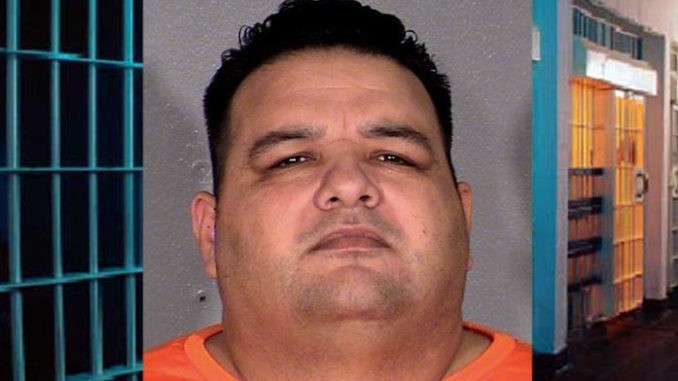
A Tucson businessowner convicted in 2018 of operating a criminal drug operation out of his store should not have been forced to stand trial with a co-defendant, the Arizona Court of Appeals recently ruled.
Gilberto Saul Jaramillo is serving six years in prison for money laundering and selling heroin from December 2015 through March 2016. He was granted a new trial Feb. 28 by a three-judge appellate panel that determined Jaramillo’s rights were violated when Judge James Marner of the Pima County Superior Court denied repeated motions by a co-defendant for separate trials.
Court records show the April 2018 trial of Jaramillo, 40, and Juan Manuel Islas stemmed from an investigation of heroin sales to undercover agents outside Jaramillo’s store. Islas would meet with the undercover officers to turn over the heroin and collect the money, but when the officers asked for more of the drug Islas purportedly went into the back of Jaramillo’s store before returning with additional drugs.
After the men were arrested, Islas claimed he was simply a delivery man for Jaramillo, who in turn contended he had no idea Islas was selling drugs from a space Islas rented in the backroom of Jaramillo’s cellphone store. Prior to trial, Islas’ trial attorney was unsuccessful in getting Marner to sever the men’s cases into separate trials.
The issue, according to both defendants, was that they planned to “point the finger at each other” on the key questions of who ran the drug operation and whose heroin was found in the store.
Court rules allow for joint trials to be used in cases with multiple defendants accused of committing a criminal offense with one or more of the defendants, or if the charges include a common conspiracy. Joint trials also allow for judicial economy in that witnesses only need to appear one time and only one jury needs to hear the same evidence.
Islas’ attorney renewed the motion to sever several times during the six-day trial, with the support of Jaramillo’s attorney. Marner denied each motion and the jury convicted Jaramillo of nine felonies, including money laundering, possession of a narcotic drug for sale, conspiracy, and conducting a criminal enterprise.
In addition to prison time, Jaramillo must serve four years of probation once released by the Arizona Department of Corrections.
After Jaramillo appealed his conviction, the Arizona Attorney General’s Office argued Marner’s joint trial decision was harmless because the jurors were instructed to consider the evidence separately as to each co-defendant.
But according to appellate opinion authorized by Judge Peter Eckerstrom, the trial judge abused his judicial discretion, as there are certain categories of criminal cases which must be severed into separate trials to promote a fair determination of any defendant’s guilt or innocence.”
Such cases, Eckerstrom noted, involve those in which co-defendants intend to present “antagonistic, mutually exclusive” defenses that force a jury to reject one of the defendant’s position over the other rather than focusing on whether the prosecutor proved all of the charges against each man.
Antagonistic defenses become “more of a contest between the defendants” than between a defendant and the prosecutor, Eckerstrom noted, quoting a 1984 Arizona Supreme Court decision.
“The core of (Jaramillo’s) defense was that he was merely a struggling shopkeeper who had rented space in the backroom of his Boost Mobile shop to his friend, Islas, to store some tools,” Eckerstrom noted, adding that the two men had presented “wholly inconsistent” defenses.
“Each defendant squarely argued that the other had singular knowledge of the heroin being stored in and sold from the Boost Mobile Store,” Eckerstrom noted. “The jury could not rationally accept both theories.”
Despite the Court of Appeal’s decision, it could be several weeks, even months, before Jaramillo returns to court to set a new trial date, as the Arizona Attorney General’s Office has the right to petition the Arizona Supreme Court for review of the opinion before it becomes effective.
Islas was also convicted at the trial of several felonies for which he received a 10.5-year sentence. Unlike Jaramillo, Islas’ conviction was affirmed by the court of appeals in February 2019 after his court-appointed appellate attorney found no grounds for an appeal.
